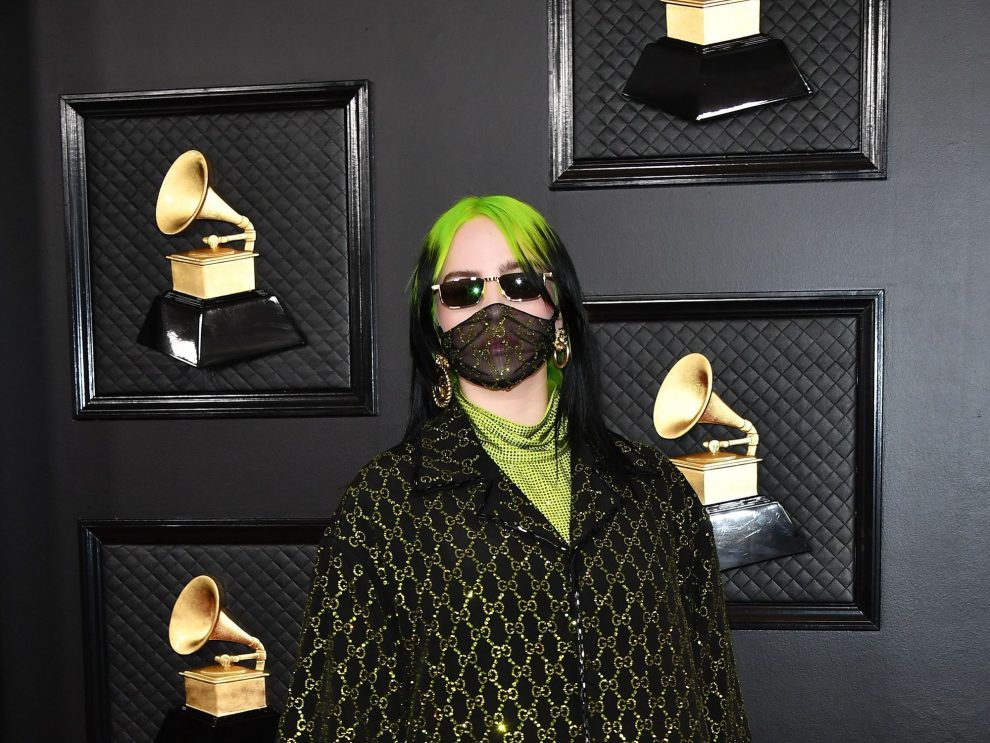
(Bloomberg Opinion) — Almost three weeks ago, the American retailer J.Crew Group Inc. filed for bankruptcy after it fell out of fashion. But there’s one item from the once feted store that shoppers just can’t get enough of: masks. The most recent batch of non-medical face coverings in its signature fabrics — plain blue shirting and blue-and-white stripes — has sold out on its British website.
Upmarket, stylish face coverings could provide a bit of a boost in a coronavirus-strewn landscape, where luxury goods sales are expected to drop as much as 35% this year, according to Bain & Co. estimates. To give some idea of the pent-up demand, fashion search platform Lyst said searches for masks are up 1,600% over the past month, compared with the year earlier.
That’s sparked a huge debate in the luxury industry as to whether to cash in. After all, if we’re going to have to wear masks anyway, why not make them chic?
It may be tempting. At the height of the crisis, many fashion houses, including LVMH’s Louis Vuitton and Christian Dior, Kering SA’s Gucci, Prada SpA, Burberry Group Plc and Ralph Lauren Inc., repurposed some production facilities to make personal protective equipment for donation to medical workers on the front lines. Burberry is poised to take delivery of a special mask-making machine at its mill in Keighley, Yorkshire. But the items will be for donation, not for sale in its shops. And they certainly won’t be made out of its iconic red, white, black and tan check.
While the brands have gained the requisite skills, there are considerable risks associated with turning masks into fashion statements. So far, the bling behemoths are wisely keeping a respectable social distance.
If luxury goods companies were to make masks for profit, not only would they need to look stylish, they would probably have to boast some health effectiveness too. And they’d have to be expensive to fit with any luxury brand’s high-end prices. For example, a Louis Vuitton monogrammed mink-fur sleep mask — perfect for catching some shuteye on that first class flight — costs 700 pounds ($859).
The danger is that luxury groups would be seen as profiteering from a health-care emergency. What’s more, according to consultants at McKinsey & Co., consumers shift to more subtle “silent luxury,” rather than in-your-face bling, after a large-scale crisis with a heavy emotional toll. What is perceived as unethical behavior — or simply ugly consumerism — could turn off customers, especially younger shoppers who are particularly conscious of brands’ social values.
One way to get around this would be to give a percentage of the profits to good causes, or to donate one mask for every one sold. J.Crew has donated 75,000 single-use masks to Montefiore Health System hospitals in New York.
Even if the pitfalls around profiteering are surmounted, there are other perils. Luxury is about feeling good. Brands must weigh whether they want to be associated with a pandemic and its huge human and economic toll. And although masks can have replaceable filters that extend their use, it’s unlikely people will hold onto them for long. Being disposable is anathema to luxury goods, from Hermes handbags to Cartier watches, for which heritage is crucial.
That doesn’t mean face coverings won’t work for some brands. For example, Off-White, the streetwear label from DJ and designer Virgil Abloh, who is also the artistic director for Louis Vuitton’s menswear, has been producing masks for some time. Off-White’s $95 arrow-logo face mask was the most in-demand men’s fashion item in the first quarter, according to the Lyst index, which measures clothing and accessories searches on its own site, Google and other social media.
Streetwear masks, along with heavy boots and multi-pocket coats, are part of an apocalyptic look that began to emerge before Covid-19. Serving to partly conceal one’s identity and repel other urban hazards like pollution, masks are a good fit with younger, edgier brands, such as the aptly named Anti Social Social Club. That’s not the case for traditional luxury.
Consequently, the big fashion houses would be better off focusing their attention on items that can be accessorized with masks, or adapting products to changing needs. Luxury resale site Vestiaire Collective saw a 45% increase in orders for scarves, including Hermes’s classic silks, in the last week of March, compared with the previous seven days, and demand has remained elevated. Brands could experiment with supersized sun visors to ensure social distancing or extended collars that could double as face coverings.
As the world emerges from the pandemic, and things become less emotionally charged, consumers may give luxury brands more permission to sell them protective clothing. For now, any move to do so will likely be a one-off to grab attention on the catwalk or Instagram. The pop star Billie Eilish, for one, donned a Gucci custom double-G-emblazoned mask for the Grammy awards in January. While Gucci’s decision not to commercialize the product means passing up millions of euros of sales, it’s the right call.
This column does not necessarily reflect the opinion of the editorial board or Bloomberg LP and its owners.
Andrea Felsted is a Bloomberg Opinion columnist covering the consumer and retail industries. She previously worked at the Financial Times.
<p class="canvas-atom canvas-text Mb(1.0em) Mb(0)–sm Mt(0.8em)–sm" type="text" content="For more articles like this, please visit us at bloomberg.com/opinion” data-reactid=”64″>For more articles like this, please visit us at bloomberg.com/opinion
<p class="canvas-atom canvas-text Mb(1.0em) Mb(0)–sm Mt(0.8em)–sm" type="text" content="Subscribe now to stay ahead with the most trusted business news source.” data-reactid=”65″>Subscribe now to stay ahead with the most trusted business news source.
©2020 Bloomberg L.P.











Add Comment